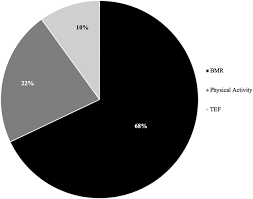The TDEE is the total daily energy expenditure. This is the amount of calories your body burns in a day when you are doing no physical activity. Athletes need to know how many calories they burn in a day because this will help them determine how much food they need to eat each day so that they can stay healthy while exercising regularly.
Why is TDEE Important for Athletes?
TDEE is the total amount of calories you burn in a day, and it’s important for athletes because it can help them set up their calorie intake by using a calorie intake calculator to lose weight or gain muscle. As per supplement advisor Legion Athletics, “Learning how many calories you “burn” every day is one of the most important steps you can take to lose weight.”
There are many different ways to calculate TDEE, but the best way depends on your goals and what kind of exercise you’re doing. For example, if a person wants to lose weight, they would subtract their BMR from their TDEE when calculating. However, if they want to gain mass, then they should add their BMR instead. The following section shares each method in detail so you can choose which one works best for your needs!
If you want to lose weight, then the best way to calculate your TDEE is by subtracting your BMR from your total daily energy expenditure. This will give you the number of calories that are being burned through activity and exercise each day. To lose 1 pound of fat per week, you are recommended to create a calorie deficit of 500 calories per day.
Interpreting the TDEE Results
You will find the TDEE results under the “BMR” column. The BMR is an estimate of how many calories you will burn if you do nothing at all. It accounts for your basal metabolic rate, or the energy required to keep your body functioning while at rest, including breathing and circulating blood.
Your TDEE is calculated based on your age, height, weight, and activity level. For example, a 23-year-old woman who weighs 155 pounds and is 5 foot 3 inches tall has an estimated resting metabolic rate (RMR) of 1125 calories per day. If that same woman then decides to start training for marathons (which requires more energy than a regular workout), her TDEE would increase by about 500 calories per day due to increased activity levels alone!
Undereating or Overeating
In general, it is not recommended to either overeat or undereat when you are an athlete. This means having a balanced diet with enough calories. It is important to note that the body needs more than just carbohydrates and proteins in order to function properly and perform at its best. It would be best if you also had vitamins, minerals and other nutrients that can only be supplied by eating foods like fruits, vegetables and legumes.
You should also make sure that you are eating enough calories daily; if you aren’t getting enough calories, then your performance will most likely suffer as well as your health! If, after all of this research, you still aren’t convinced about how important TDEE is, then read on because there are some things that need to be discussed before moving on.
TDEE plays a crucial role in the athlete’s body. It helps them to meet their energy requirements and perform better in their respective sports. The results are highlighted by an athlete’s height, weight, age, gender, activity level and more.
